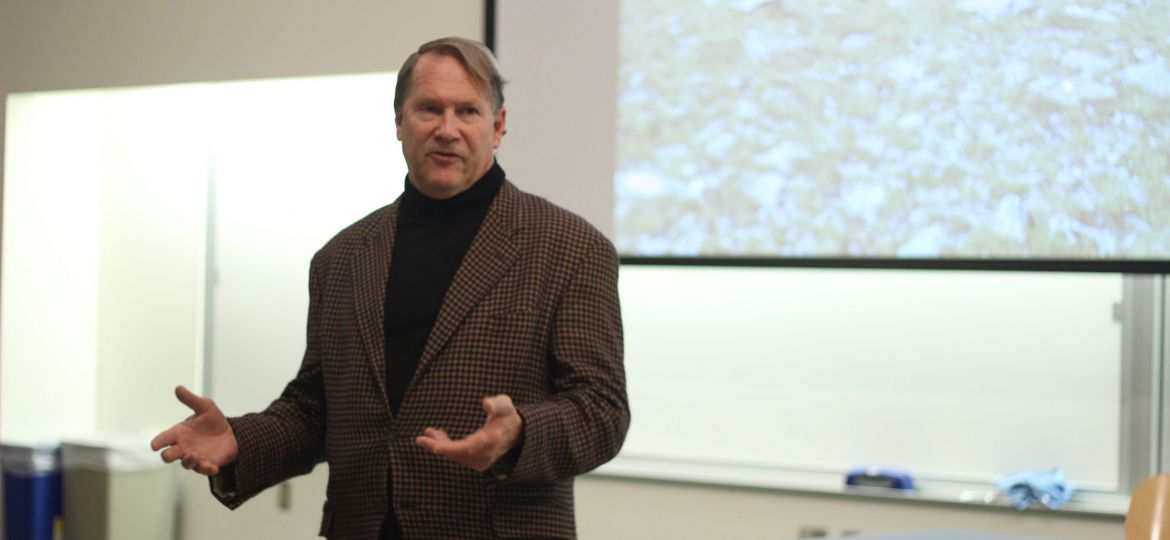
A historian who looks at the human effect on climate change over the course of time. An author who wrote a book on Hannibal Barca, the ancient Carthaginian leader and enemy of Rome. An environmentalist who asks tough questions about our planet. Meet Dr. Patrick Hunt of Stanford University. Bringing his suitcase packed with experience and expertise from his many expeditions, Hunt paid a visit to St. Olaf College last Friday, Nov. 3 and talked about his new book “Hannibal” in Regents Hall of Natural Science.
Hunt has been a professor at Stanford for 25 years and has led numerous archeology projects on climate and culture in the highest parts of the Alps between Switzerland and Italy. Every year he heads teams across at least ten Alpine passes in search of topographical clues matching the texts of Polybius and Livy, who wrote about Hannibal nearly two millennia ago. He has worked on projects for the National Geographic and he has appeared in a number of documentaries for the BBC and the History Channel.
Hunt directed the Stanford Alpine Archaeology Project from 1994 to 2012. His research focuses on Hannibal Barca, who is considered one of the greatest military commanders in history. Hunt explained the tactics Hannibal employed to pass the Romans undetected and more contemporary issues, such as his impact on current world leaders.
Over the course of 25 years trekking through the Alps, Hunt and his students took every single possible route that Hannibal could have led his troops on during the Second Punic War in 218 BC.. Hunt’s expeditions have uncovered long hidden secrets about Hannibal, and revealed how he used the environment to his advantage and fought off armies three times the size of his own.
Professor Tim Howe of the History Department shared his excitement about the lecturer.
“A person like this actually exists,” Howe said. “I hope that students can come away knowing that lifelong learning is a thing. You don’t have to specialize in one major; you can be informed by so many different disciplines to create your vocation. And more importantly, you can make being an adventure a living.”
The invitation to this lecture was extended to Carleton students and members of the Northfield community with an intimate dinner for students before the talk. The St. Olaf faculty hope that by inviting Dr. Hunt to campus, they can give St. Olaf students, Carleton students and the Northfield community the opportunity to talk to a notable professor from Stanford. The lecture also aimed to reach as many community members as possible.

